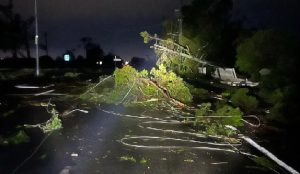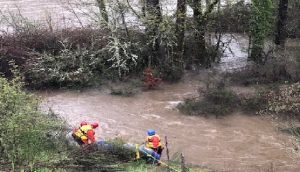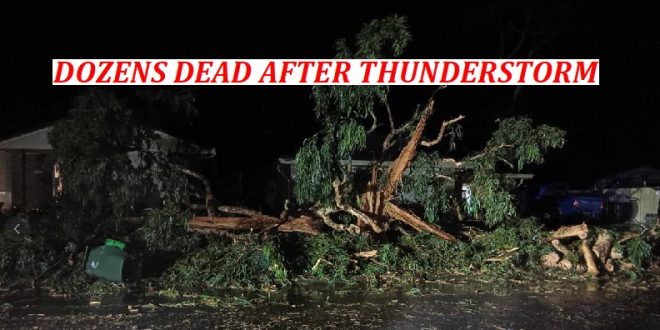28-12-2023
Bureau Report + Agencies
SYDNEY: Nine people were killed in Australia after severe thunderstorms battered the country’s east over the Christmas holidays, authorities said on Wednesday, with tens of thousands of properties still without power.
 Wild weather lashed the states of Victoria, New South Wales and Queensland on Dec. 25 and 26 bringing large hailstones and torrential rains. Strong winds blew off roofs and brought down trees in some of the worst-affected areas. More than 90,000 households are still without power.
Wild weather lashed the states of Victoria, New South Wales and Queensland on Dec. 25 and 26 bringing large hailstones and torrential rains. Strong winds blew off roofs and brought down trees in some of the worst-affected areas. More than 90,000 households are still without power.
Three men were killed after a yacht with 11 on board capsized near Green Island in Moreton Bay during the storm, Queensland Police Commissioner Katarina Carrol told reporters.
Two women were found dead near the town of Gympie, about 180km (112 miles) north of the state capital of Brisbane, after they were swept away in flooded storm water drains, police said. A nine-year-old girl was found dead after going missing in a storm water drain in Brisbane’s south.
Authorities warned fast-rising rivers and streams could burst banks inundating campgrounds, which usually become crowded during the Christmas and New Year weeks.
A woman was found dead in a campground in Victoria after flood waters receded, police said. Two were killed by falling trees.
The storm took down a concrete power line, which was “pretty significant and unprecedented”, Queensland Premier Steven Miles said during a media briefing. Miles said the damage from Cyclone Jasper, which hit the state earlier this month, and the latest thunderstorms could be in “the billions.”
 Australia’s Bureau of Meteorology has forecast further rain though the wild weather was expected to ease later on Wednesday.
Australia’s Bureau of Meteorology has forecast further rain though the wild weather was expected to ease later on Wednesday.
“Thankfully today, we are not expecting to see quite as widespread thunderstorm activity but there is still a risk of severe thunderstorms right across the east coast,” forecaster Jonathan How told media television.
The storms follow intense heatwaves in the spring that resulted in several bushfires and after Cyclone Jasper caused widespread damage.
“When you start to piece together the experiences of this summer so far it is clear that we are living through an era of escalating climate consequences,” said Simon Bradshaw, research director at the independent nonprofit Climate Council.
As Australia battles rain in the east, several regions in the west, in contrast, are fighting fires. A volunteer firefighter was killed while responding to a bushfire, media reported.
Australia’s December-February summer is under the influence of the El Nino phenomenon, which can cause weather extremes ranging from wildfires to cyclones and prolonged droughts.
 Pressmediaofindia
Pressmediaofindia




